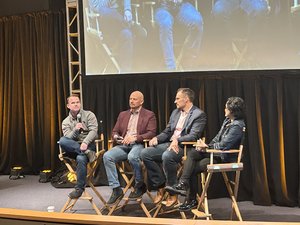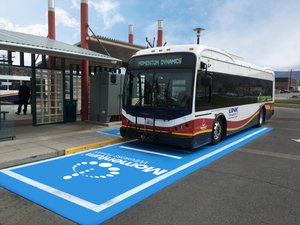
Fort Robotics, a Philadelphia company previously focused on creating hardware for autonomous machines, is changing its approach with a new platform aimed at allowing control of all machines across any network.
The shift into software is expected to help Fort Robotics cross the $10 million revenue threshold later this year and support the company's longer term goal of having "every machine built on Fort and every worksite managed with Fort," regardless of its original platform, founder and CEO Samuel Reeves said.
Reeves believes Fort Robotics is the first company to develop such a system.
"Our platform is the only way in the market to maintain control over any network, over LTE networks, over Wi-Fi networks, over Bluetooth, over the wiring networks the internet is working," Reeves said. "As far as we can tell, we're the only way in the world for people to build that control system that is truly internet scale for smart machines."
Up until recently, Fort Robotics had been mainly focused on selling wireless remote controls for machines like its vehicle safety controller or wireless e-stop device, in addition to offering itsFort Manager platform, which allows customers to manage their Fort Robotics devices. The hardware helps to control smart machines in places like warehouses, factories and construction sites, with the goal of making those operations more safe and secure. Now, Fort Robotics is focusing on building out software to connect all of those machines. Reeves said Fort Robotics could be more of a software company than a hardware company in 15 years.
"It's really our emergence from a few valuable safety applications into a full-blown safety and security platform that works with any kind of smart machine and offers just crazy futuristic capability," Reeves said.
As smart machines become more prevalent on worksites, particularly in warehouses, construction and even agriculture, the need for widespread control and command is becoming more pressing. A study from McKinsey and Co. found that the warehouse automation market is expected to grow annually by 23%, reaching $51 billion by 2030. Another survey of logistics companies found that close to 80% predict they'll adopt robotics and automation within five years.
Fort Robotics has thus far reaped the benefits of such adoption and the efficiencies autonomous machines provide, having seen its design wins, or instances when a company integrates Fort's products, double each yearsince 2020.
Reeves said that the products the startup has been selling since its founding in 2018, which make up the bulk of its revenue, will ultimately be an entry point into what will become a broader Fort "ecosystem." He added that a few dozen customers are already using the new software platform.
"What you really need as these machines grow in number, in fleet size, in numbers of facilities, is something that's more internet scale," Reeves said. "The new platform offers that."
Fort Robotics has raised a total of $41.5 million in its five years of existence, including a $25 million funding round it closed last July and a $13 million round in March 2021 that included billionaire investor Mark Cuban. Reeves said even as the company eyes its expanded capabilities, he is still in "wait-and-see mode" when it comes to further fundraising given the current economic environment.
Fort Robotics has also grown its headcount to 80, Reeves said, a roughly 52% increase since its July 2022 fundraising round.







